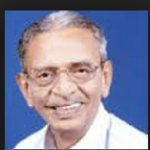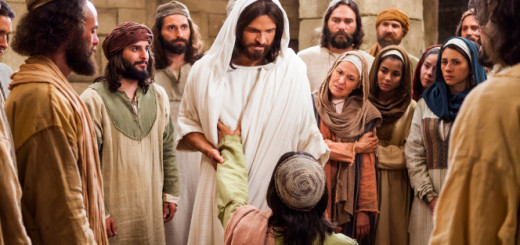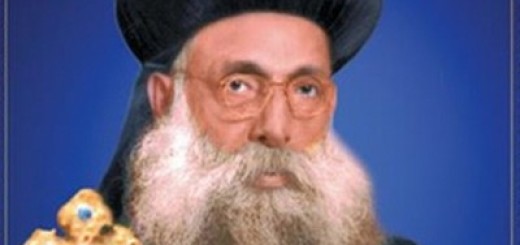In the middle of identity crisis

A woman sits in front of candles and flowers at a makeshift memorial in Nice, in tribute to November 13 attacks in Paris. (AFP Photo)
-Europe must come together to fight IS – Dominique Moisi, Project Syndicate, Paris, Nov 17, 2015
(Note: Paris has seen two terrorists attacks, the latest like the 9/11 in New York or the one in Bombay. It is not time now to  cry over spilt milk but to be up and doing to prevent a repeat of anything similar. Enough is enough. This sort of barbarism must be defeated with clarity, unity and firmness through an action plan by civilized nations. The strength of Islamic state is not either the size of its geographical territory or the great number of its leaders or followers. It draws its strength from a radical ideology rooted in the minds of a few die-hard scattered terrorists, not all Muslims but fringe elements of different nationalities – French, Belgian, British etc – bound together by a terrorist ideology and therefore can’t be eliminated by a pot shot. What is needed is to arrest the high jacking of the true, pacific nature of Islam by a handful of violent radical elements among Muslims aided and abetted by any number of recruits from other nations and religions.So it must be war of ideologies led by right thinking Muslims themselves to give it credibility and acceptance by the rest of the world. james kottoor, editor).
cry over spilt milk but to be up and doing to prevent a repeat of anything similar. Enough is enough. This sort of barbarism must be defeated with clarity, unity and firmness through an action plan by civilized nations. The strength of Islamic state is not either the size of its geographical territory or the great number of its leaders or followers. It draws its strength from a radical ideology rooted in the minds of a few die-hard scattered terrorists, not all Muslims but fringe elements of different nationalities – French, Belgian, British etc – bound together by a terrorist ideology and therefore can’t be eliminated by a pot shot. What is needed is to arrest the high jacking of the true, pacific nature of Islam by a handful of violent radical elements among Muslims aided and abetted by any number of recruits from other nations and religions.So it must be war of ideologies led by right thinking Muslims themselves to give it credibility and acceptance by the rest of the world. james kottoor, editor).
Ever since the terrorist attacks in January on the satirical magazine Charlie Hebdo and a kosher supermarket, Parisians knew that barbarism lurked around the corner, and that it would strike again. But it is one thing to know something, to anticipate it, and another to be confronted with the grim reality. On Friday night, reality struck us with a vengeance. We are at war. It would be wrong — even dangerous — not to admit it. And to win will require clarity, unity, and firmness.
Clarity of analysis is what we now need the most. We barely know our enemy, except for the intensity of his hatred and the depth of his cruelty. To understand his strategy, we must recognise him for what he is: An intelligent — and, in his own way, rational — adversary. For too long, we have despised and underestimated him. It is urgent that we now change course.In the last few weeks, the Islamic State’s strategy of terror has brought death to the streets of Ankara, Beirut, Paris, and to the skies over Sinai. The identity of the victims leaves no doubt about the message. “Kurds, Russians, Lebanese Shia, French: You attack us, so we will kill you.”
The timing of the attacks is as revealing as the targets’ nationality. The more the Islamic State is defeated on ground and loses control of territory in Syria and Iraq, the more it is tempted to externalise the war to deter further intervention. The synchronised attacks in Paris, for example, coincided with the Islamic State’s loss of the Iraqi city of Sinjar.Of course, the terrorist cell that struck Paris was not created in the wake of the Islamic State’s recent battlefield losses. It was already in place, waiting to be activated (as others may be). That demonstrates the Islamic State’s tactical flexibility, not to mention the availability of people willing to commit suicide.
If the Islamic State chose this time, in Paris, to target people who are not satirists, policemen, or Jews, it is precisely because their “ordinariness” left them unprotected. This time, the attackers chose “quantity” over “quality” (if one may be pardoned for such a crude formulation). The goal was to kill as many people as possible.This strategy is possible because the territory controlled by the Islamic State provides a sanctuary and training ground. The self-proclaimed caliphate’s territories represent for the group what Taliban-controlled Afghanistan meant for al Qaeda in the 1990s.
It is imperative to regain control of this territory. And destroying the Islamic State’s “provinces” in Libya, Sinai, and elsewhere must become the number one priority of the international community.Beyond analytical clarity, there is a need for unity, beginning in France, where citizens should reject their political class, were its members to continue to behave divisively at such an obvious historic turning point.Unity must also be achieved within Europe. We are repeatedly told that Europe is in the midst of an identity crisis, in need of some new project. Well, now Europe has found one. To be European means to confront together the scourge of barbarism, to defend our values, our way of life, and our way of living together, despite our differences.
Unity is also required of the Western world as a whole. President Barack Obama’s statement after the Paris attacks demonstrates that what unites Europe and the United States is much more significant than what divides us. We are in the same boat, faced with the same enemy. And this sense of unity must go beyond the European and Western world, because the Islamic State threatens countries such as Iran and Russia, not to mention Turkey, as much — if not more — than it does the West.Of course, we must be realists. Our alliance of circumstance with these countries will not overcome all problems between them and us. So, beyond clarity and unity, we need firmness, both in confronting the threat of IS and in defending our values, especially adherence to the rule of law.
The Islamic State expects from us a combination of cowardice and overreaction. Its ultimate ambition is to provoke a clash of civilisations between the West and the Muslim world. We must not fall prey to that strategy.But clarity comes first. When Paris is attacked as it was last Friday, one must speak of war. No one wants to repeat the errors of the US under President George W Bush; but to use those errors as an alibi to avoid confronting the world as it is would merely be an error of a different sort. Europe’s response must be tough, but it must not deviate from the rule of law. We are, after all, engaged in a political battle with the Islamic State, one in which our love of life must prevail over their love of death.
Dominique Moisi, a professor at L’Institut d’études politiques de Paris (Sciences Po), is senior adviser at the French Institute for International Affairs (IFRI) and a visiting professor at King’s College London. The views expressed are personal.
















